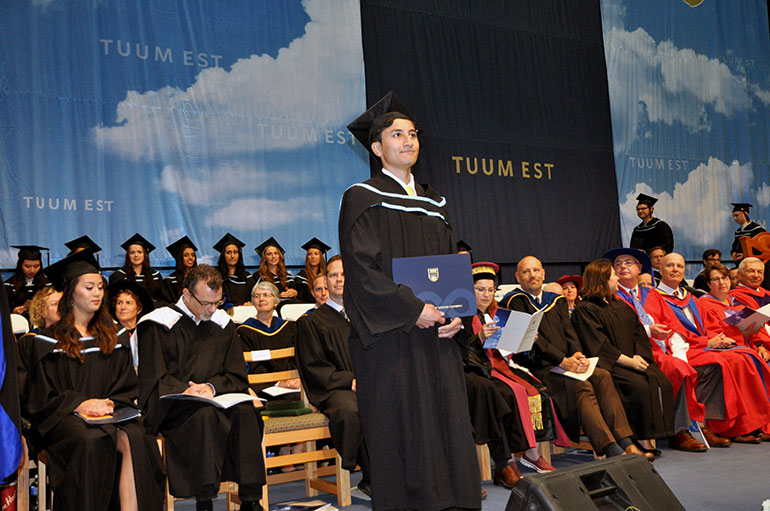UBC Okanagan researcher working with community groups to develop online education
Researchers from UBC’s Okanagan campus have received over $1.3M in federal funding to prepare youth living with intellectual disabilities (ID) or Autism Spectrum Disorder (ASD) to find meaningful employment later in life.
“For most, going to work and earning a paycheque is a routine part of life,” says Rachelle Hole, principal investigator on the Transiting Youth with Disabilities and Employment (TYDE) project. “But for those living with ID or ASD, finding a job can feel out of reach. It should come as no surprise, then, that only 22 per cent of Canadians with ID or ASD have some form of paid employment and those that do often receive low wages and work few hours.”
Hole, who is an associate professor at UBC Okanagan’s School of Social Work and Co-Director for the Centre for Inclusion and Citizenship, says that TYDE aims to shift those statistics. The project, which was recently awarded $742,089.00 from the Canadian Institute for Health Research and $589,561 from the Social Sciences and Humanities Research Council of Canada, will spend the next year developing curriculum for an online interactive learning environment to help those with ID and ASD—also called self-advocates for their efforts in speaking up for themselves and others—improve their knowledge and future employment outcomes.
“The research is very clear,” says Hole. “Supporting self-advocates as they transition from school to adult life and giving them opportunities to contribute through meaningful work has enormous benefits for both the individual and the businesses they work for.”
She also points out that self-advocates have above average attendance, a low turnover rate and evidence shows that businesses that offer employment opportunities have higher staff morale and are seen more favourably than their competitors.
The TYDE Project is unique in that its curriculum will be focused not just on self-advocates but also on their caregivers, who Hole says have often been overlooked but who play an important role in early interventions. Hole also highlights the diversity of partners on the project, which include academia, not-for-profit and government from across BC.
“This is certainly the first time this much expertise and resource from around the province have coordinated to help solve this problem,” says Hole. “We’ll spend the next 12 months pouring over past research and existing resources to develop the most effective learning modules we can, based on our collective knowledge.”
John Graham, director of UBC Okanagan’s School of Social Work, welcomes the new funding, which he says will make a real difference in the lives of self-advocates.
“This is an important initiative and one that will help those with developmental disabilities live richer and more fulfilling lives,” says Graham. “I’m proud that one of our professors is playing such a leading role.”
Hole is planning for the first cohort of self-advocates to test the new online tool in the fall of 2019 and the team expects that as the tool is refined, it will prove useful to self-advocates beyond just BC.
“While the resources are being developed here in BC, our intention is for this tool to be scalable and applicable nationally or even internationally,” says Hole.
“I’m hoping this can position a new generation of engaged and hard-working self-advocates to find their place in the job market.”

